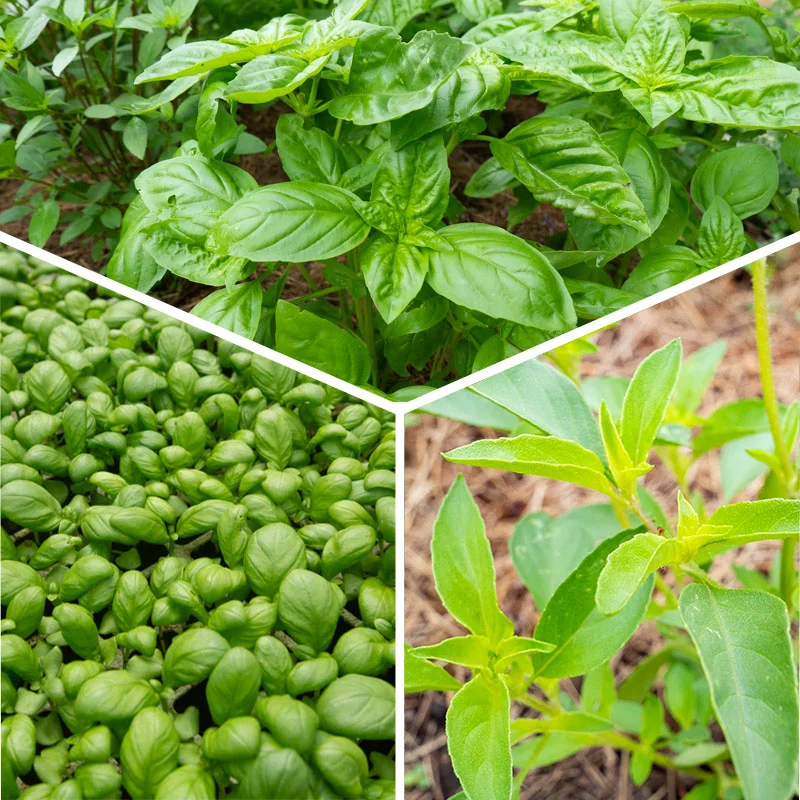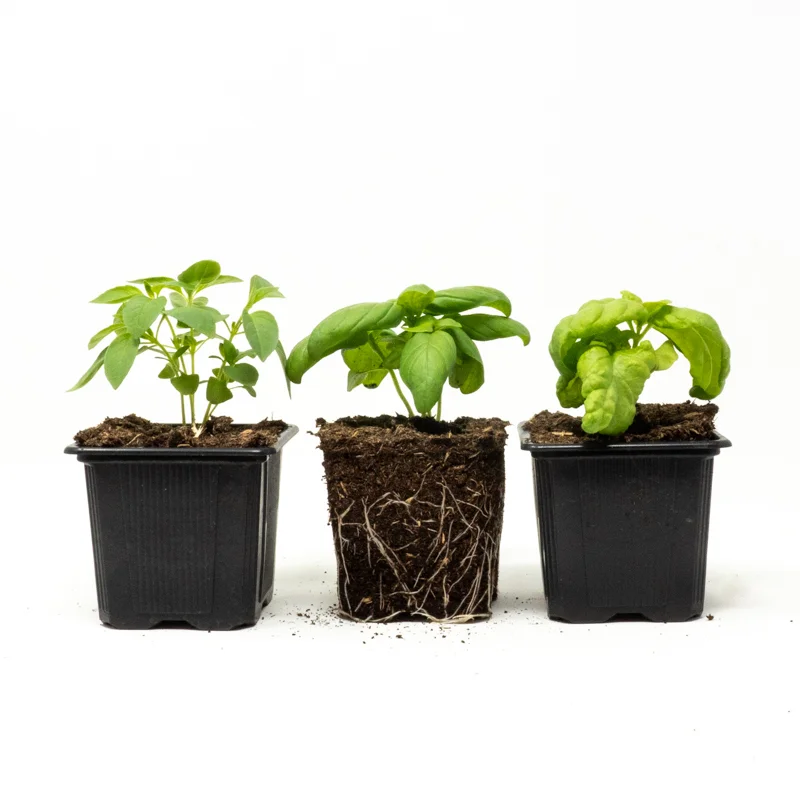Organic basil trio 3 plants
Cultivate diversity with this trio of different organic basil varieties! From the traditional Grand Vert, ideal for cooking pestos, to the exotic Lime, with its lemony flavours, to the astonishing Mammoth, with its oversized dimensions, discover easy-care basil with unique flavours. Outdoors in the vegetable garden, in pots or tubs, welcome these aromatic and medicinal plants to enhance all your recipes.
- Basil Grand Vert
Widely grown in gardens and kitchens, Grand Vert is an ancient variety from Italy. Vigorous and adapted to a wide range of growing conditions, it produces an abundance of large, rounded, powerfully fragrant leaves. They are traditionally used to prepare basil oil and Provençal pistou.
- Mammoth basil
Mammoth basil has very large leaves, up to the size of a hand! Slightly embossed and green to yellow in color, they exude a strong fragrance.
- Basil Lime/Thai Lemon
Basil Lime is an ancient variety, called "Maenglak" in Thailand. It produces an abundance of small, elongated, pointed leaves with an intensely lemony flavor and is traditionally added at the end of curries, sauces and stir-fries.
When to plant basil
As soon as frosts are no longer a threat and the soil has warmed up sufficiently - generally from April to May, depending on the region - plant the basil plants in the vegetable garden, in pots or tubs, 20 to 30 cm apart in all directions.
How to plant basil
Before planting basil in the vegetable garden, harden young plants used to stable environments. Take them outside gradually, for one or two weeks, to gently acclimatize them to climatic conditions.
For good basil planting in the vegetable garden:
- dig holes about 15 cm wide and deep, 20 to 30 cm apart in all directions;
- place a good handful of well-decomposed compost at the bottom;
- remove the roots;
- Place them upright, with the root ball and stem buried up to the first leaves, in each hole;
- close up and pack lightly around the plants;
- water generously;
- mulch.
During cultivation, water in dry periods.
Basil pruning consists of pinching or cutting the main stem between 7 and 10 cm high, above a node, to encourage branching. Then pick the basil leaves by cutting the secondary stems always above a pair of leaves, so that the lateral buds can develop.
Basil assortment shipping and delivery
- Orders are dispatched Monday to Thursday.
- Shipment to mainland France only.
- Shipping cartons designed for optimal plant protection.
- Free shipping does not apply to plants.










